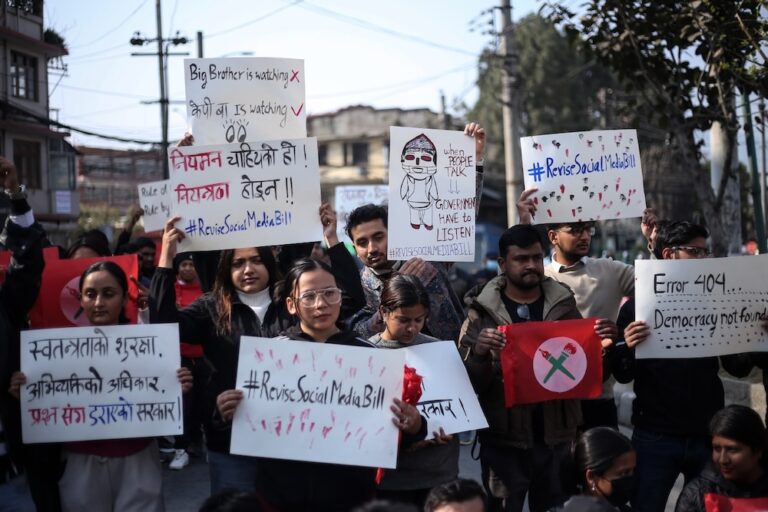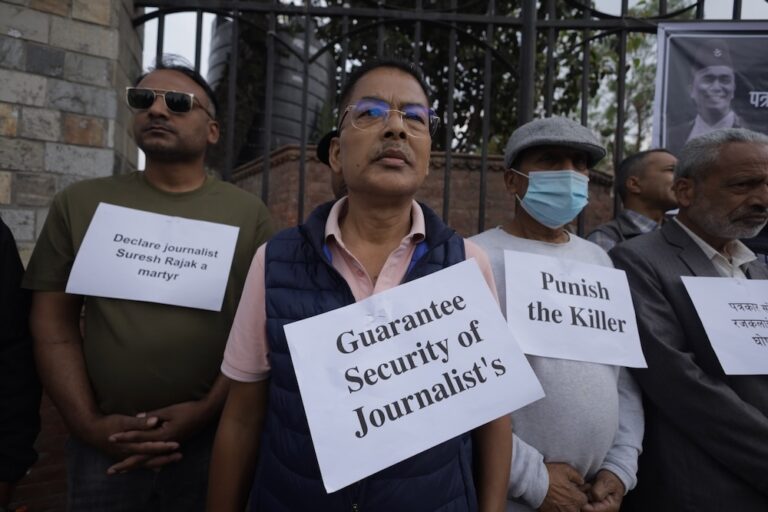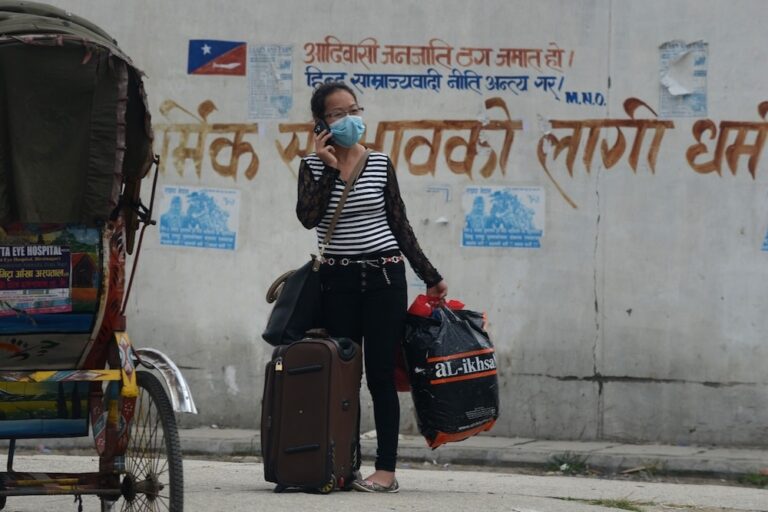The government issued directives to ministries and civil servants listing 140 categories of information that should not be given to news media, civil society organisations or members of the public.
(RSF/IFEX) – 1 February 2012 – Reporters Without Borders is worried by the Nepalese government’s decision on 15 January to drastically increase the range of official documents that are classified – a decision that had been delayed by appeals to the supreme court. The press freedom organization also condemns the many cases of violence against journalists that have taken place since the start of the year.
“Access to official documents is essential for freedom of information, which is a key component of democracy,” Reporters Without Borders said. “We urge the authorities to reverse this decision. How can the media cover the policies pursued by the government and its leaders if the necessary documents are not accessible?
“We support the journalists who have demonstrated against this increase in the classification of information and we now await the supreme court’s decision on the petitions it has received opposing the measure. We will continue to follow this issue closely.”
The government issued directives to ministries and civil servants listing 140 categories of information that should not be given to news media, civil society organizations or members of the public. This was a drastic increase on the 2007 Right to Information Act, which listed only five categories, above all those concerning royal powers. The new categories include political party financing, development projects, parliamentary decisions and governmental decisions.
Reporters wore black armbands in protest against the measure while covering a visit by the prime minister to a festival in the eastern district of Dhankuta on 29 January. The festival’s organizers told the journalists to remove the armbands or leave. After being escorted out of the festival, they were detained by the police and prevented from reentering for four hours. Some were roughed up.
Two petitions have been filed before the supreme court by a lawyers’ association objecting to the measures on the grounds of their harm to the public interest.
The court began reviewing the petitions on 31 January and is due to continue until 5 February, by when it should have heard all the various parties to the dispute. The court issued a stay order today temporarily halting implementation, while the office of the prime minister and cabinet issued a new directive instructing ministries to delay putting the new classifications into effect.
Prime Minister Baburam Bhattarai also met with the Federation of Nepali Journalists today, promising them that the decision would not be put into effect and that all concerned parties would henceforth be consulted about classification decisions.
Meanwhile there has been no let-up in violence against journalists since the start of the year, with political parties often being blamed.
In one of the latest cases, Abadesh Kumar Jha, a reporter for Kantipur and The Kathmandu Post, was threatened on 29 January by Laxman Thapa, the head of the security committee in the eastern district of Morang, after Jha wrote about the protection that Thapa had given to a company involved in a counterfeiting case.
Nepali Congress party member Murali Kumal threatened Naveen Raj Kuikel of the Khabar Daily on 24 January in the eastern district of Lamjung over an editorial that had appeared in the newspaper. Kumal threatened to break Kuikel’s hands and burn the paper.
Rupakot Community Radio editor in chief Surya Tamang was threatened by an unidentified individual on 23 January in the eastern district of Khatang simply because he was a journalist.
Ram Sharan Kharel, the editor of the weekly Rashtrachakra, was accosted in Kabhrepalanchok district on 21 January by a group of teachers who threatened to beat him for publishing a story about alleged irregularities in the management of their school. One of the newspaper’s reporters, Kamal Prasad Kharel, was also threatened.
Byline Weekly reporter Himal Rai was attacked and beaten in Barahachhetra, in the eastern district Sunsari, on 15 January as he was returning from a religious festivity that he had covered. His inebriated attacker, Binod Limbu, said: “You are the man to write news.” The police arrested Limbu after watching the attack without intervening.
Setimadi Daily editor Dambar Bahadur Adhikari and Madiseti Prabaha editor Omkar Acharya were accosted and roughed up on 4 January in the western district of Tanahu by assistant district chief Rajendra Prasad Ghimire, who was inebriated. The two journalists had just covered a case of alleged financial irregularities in the distribution of medicine for elephantiasis.
Unidentified gang members beat Bheri FM reporter Tirtha Jaisee on 3 January in the west-central city of Nepalgunj. A suspect was arrested the next day.
(. . .)


